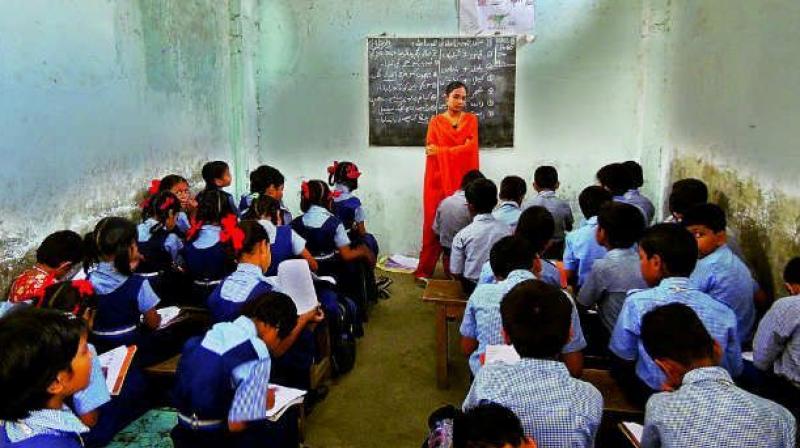'Can't fight polls if your child is not enrolled in school,' recommends NCPCR
The latest recommendation from the NCPCR stated that a candidate should not be allowed to contest polls if his child doesn't go to school.

New Delhi: The National Commission for Protection of child rights has made an appeal to all state governments and asked them to disqualify candidates if they do not send their children to school for local body and Panchayati Raj elections.
According to the recommendation by the apex body for Child Rights, a candidate must produce a certificate from his child's school to prove that his/her ward is enrolled there and has regular attendance.
This is only for those candidates who have children between the age of 6-14 years.
"We have appealed to state governments to make amendments in electoral rules for local body elections and panchayati raj institutions and say that anyone who wants to fight elections will need to produce a certificate from his child's school to prove that his/her ward is enrolled there and is attending the school regularly,” said Priyank Kanoongo, Member- RTE and Education, NCPCR adding that candidates must not be allowed to contest if they fail to do this.
Kanoongo also said that this suggestion draws from the 86th amendment of the Constitution, which inserted Article 21a and made education a fundamental right, as well as the Right To Education Act, 2009.
The NCPCR official calls it a "new milestone" in creating awareness as an elected representative will be an example in the society. He also said that this move will help in drawing politicians’ attention towards the state of schools in his state.
This suggestion is also part of recommendations prepared by NCPCR on "re-engagement of out-of-school children and prevention of drop-outs", which were tabled before a sub-committee of Central Advisory Board of Education (CABE) of the Ministry of Human Resource Development.
In the recent past, there have been laws passed by Haryana and Rajasthan governments imposing minimum educational requirements for candidates contesting Panchayat elections.
Many activists have said that the move was against the principle of universal suffrage.
According to Kanoongo, there is no such debate about NCPCR's move.
"We are not talking about those who were denied education in the past either because of caste or poverty but about today's children who have a right to free and compulsory education. If you oppose to this, right then you are opposed to the Constitution as well," he said.

